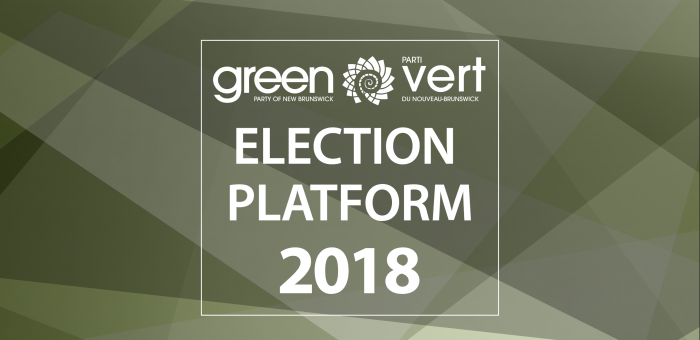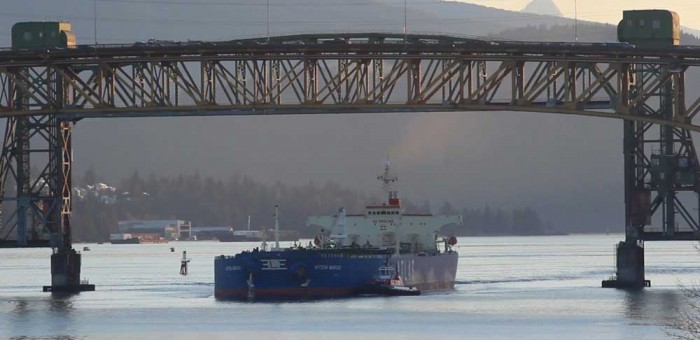Issues Blog
Welcoming the rental formula change
The BC Government today announced that it was accepting the recommendations of the BC Rental Housing Task Force.
Below is the media release my colleague Adam Olsen and I issued in response to the government’s announcement.
Media Release
Weaver welcomes rental formula change
For immediate release
September 26, 2018
VICTORIA, B.C. – Andrew Weaver, leader of the B.C. Green Party, and Adam Olsen, Rental Housing Task Force (RHTF) member, welcomed the government’s announcement that it has accepted the RHTF’s recommendation to change the allowable rental increase formula from the inflation plus a guaranteed 2% to inflation only (2.5% for 2019). The RHTF made the recommendation on Monday, and Weaver urged government to accept their recommendation.
“I am delighted that B.C. renters will have some relief in 2019,” said Weaver.
“When we work together to advance evidence-based solutions there is much we can accomplish. This is a sensible change that will make life more affordable without putting a dent in the provincial budget. We were also pleased to support increased funding in the budget for targeted programs like SAFER and RAP and to build affordable housing, as well as changes to the Residential Tenancy Act. We are in continuous, active discussions with government to explore further policies that we both agree will increase affordability.”
Olsen also welcomed the government’s announcement.
“It is truly rewarding to see the efforts of our collaboration become government policy,” said Olsen.
“The lack of affordable rentals has wide-ranging impact in every corner of society, from seniors on fixed income, to young people and students, to small businesses struggling to find employees. I believe this policy strikes the right balance of encouraging affordable rents while giving landlords the ability to apply for justified higher increases. I look forward to releasing the rest of our recommendations soon so that we can continue to deliver on our shared promise to address the affordability crisis.”
-30-
Media contact
Jillian Oliver, Press Secretary
+1 778-650-0597 | jillian.oliver@leg.bc.ca
Congratulations to New Brunswick Greens on electing first caucus
New Brunswick went to the polls today and elected a minority government with the New Brunswick Greens and the People’s Alliance holding the balance of responsibility. The final result was 21 seats for the Liberals, 22 seats for the progressive conservatives, 3 seats for the NB Greens and 3 seats for the People’s Alliance. 25 seats are needed for a majority government.
This is an exciting time for New Brunswick as their electorate sent a clear message that they wanted their representative to work together.
Below is the media release I issued congratulating David Coon, Kevin Arseneau and Megan Mitton on their success.
Media Release
Weaver congratulates New Brunswick Greens on electing first caucus
For immediate release
September 24, 2018
VICTORIA B.C. – Andrew Weaver, leader of the B.C. Green Party, is extending his congratulations to David Coon, leader of the New Brunswick Green Party, on the election of his first caucus. The New Brunswick Greens join the B.C. Greens and the P.EI. Greens as the first provincial Green Party caucuses in Canada.
“I extend my sincere congratulations to David and his team on the incredible growth they achieved tonight,” said Weaver.
“I also commend David and his Party for running on a positive campaign based on hope, not fear.
“Last year, there were three provincial Green representatives in office across the country. Now there are nine elected in B.C., Ontario, New Brunswick and P.E.I. This is a testament to the hard work of provincial Green Parties and the increasing resonance of our message as voters look for sensible, evidence-based policies that consider the impact of our decisions on future generations.
“The Greens and the People’s Alliance are now faced with the same balance of responsibility that our Caucus was in when the results came in in May 2017. While this burden will weigh heavily on them, minority governments are good news for voters. When political parties are forced to work together, they make better decisions. I wish them both well as they move towards establishing the agreement that will form the next government of New Brunswick.”
Weaver was the first Green politician elected at the provincial level in Canada in 2013. He was joined by B.C. Green MLAs Sonia Furstenau and Adam Olsen in 2017 when the Party doubled its popular vote share to 17%.
– 30 –
Media contact
Jillian Oliver, Press Secretary
+1 778-650-0597 | jillian.oliver@bcgreens.ca
Welcoming additional funding for electric vehicles
Today the BC government announced that it was injecting another $10 million into the Clean Energy Vehicle Program (CEVP). The program has been so successful, that it was in danger of running out of funds later this month. As noted in our media release (reproduced below) I am very pleased that the program received the additional funding.
This file is one on which I have spent a good deal of time. Ensuring the stability of this flagship program was essential in advance of the upcoming announcement of British Columbia’s clean growth strategy later this fall.
Media Release
Weaver welcomes additional funding for electric vehicles
For immediate release
September 24, 2018
VICTORIA, B.C. – Andrew Weaver, leader of the B.C. Green Party, praised the BC government’s efforts to find more funding to support vehicle adoption. Weaver says the higher-than-forecasted demand shows that British Columbians are on board with the transition to the low-carbon economy.
“British Columbians clearly want electric vehicles and I am pleased the government has found more funding to support their choices,” said Weaver.
“Over the past several months, we heard concerns from British Columbians that this funding was running out. We communicated these concerns to government and I am delighted that they acted quickly and decisively on this essential priority.
Due to higher-than-expected demand for EVs, the government added an additional $10 million to support the adoption of EVs, hybrids and fuel cell vehicles while it looks for more stable funding.
“As with any new technology, the cost of research and development is baked into the price of electric vehicles, driving up prices,” Weaver continued. “Transportation makes up 40% of B.C.’s emissions. We should ensure that stable, long-term funding is available to help support British Columbians to make the shift towards zero-emission vehicles.
“Our office has been working closely with the government to develop the Clean Growth Strategy that will position B.C. to be a leader in the low-carbon economy while enabling us to meet our targets. It will be essential that this plan be backed up with adequate funding and implementation. As the New Zealand Productivity Commission found last month, early action is almost always a winning economic strategy, even if other jurisdictions are slow to act. B.C. has all the strategic advantages we need to seize the economic opportunities arising as the world transitions to low-carbon economy, and the demand for EVs shows that British Columbians are on board. I look forward to making this vision a reality.”
-30-
Media contact
Jillian Oliver, Press Secretary
+1 778-650-0597 | jillian.oliver@leg.bc.ca
Responding to the Rental Task Force Recommendation
Today the BC Rental Housing Task Force released an interim recommendation concerning the formula used to calculate maximum allowable rent increases in BC. In particular, the task force recommended:
- changing the maximum rent increase formula, from the current formula of inflation plus 2%, to inflation only (2.5% for 2019), which would remove the automatic 2% yearly increase.
- giving landlords the ability to apply for an additional increase if they can show the formula would not cover maintenance and other costs incurred.
As I noted earlier, BC was to allow a maximum rent increase starting January 1, 2019 of 4.5%. This would have been the largest allowable increase since 2004 and follows on the heels of a 4% increase in 2018. In fact, during the four years under the BC Liberals, the compounded maximum allowable rental increase was 11.8%. In just two years, the BC NDP would have allowed an 8.7% compounded increase.
As pointed out by my colleague Adam Olsen:
“Providing relief for British Columbians struggling amidst the affordability crisis is a key shared commitment between our two caucuses. This task force exemplifies how minority governments lead to sensible policies that will make a real difference in peoples’ lives“
Below I reproduce the statement my office released in support of the task force recommendation. We look forward to government adopting this recommendation and to the task force releasing their full report later this fall.
Media Release
Weaver responds to Rental Task Force Recommendation
For immediate release
September 24, 2018
VICTORIA, B.C. – Andrew Weaver, leader of the B.C. Green party, responded to the Rental Housing Task Force recommendation that the provincial government amend the annual allowable rent increase formula, to restrict increases to the rate of inflation:
“I want to commend the Task Force for their work on an issue of critical importance to British Columbians, and I urge the provincial government to adopt the recommendation. Today’s announcement is a strong step in addressing both current and ongoing rental affordability.
“The rental task force represents the best of minority government. We have two different parties that have come together on an issue of shared interest and have developed solutions for government to consider. This is exactly the type of collaboration that we need more of in our political system.
“I look forward to reviewing the other recommendations this committee brings forward and working with the government to ensure good policy is implemented that will improve fairness for both landlords and renters in our province.”
-30-
Media contact
Jillian Oliver, Press Secretary
+1 778-650-0597 | jillian.oliver@leg.bc.ca
Terms of new environmental review of Trans Mountain a concern
Today the Federal government announced its path forward on the Trans Mountain Pipeline expansion project. In response, my office issued the media release reproduced below.
Media Release
Weaver: Terms of new environmental review of Trans Mountain a concern
For immediate release
September 21, 2018
VICTORIA, B.C. – Andrew Weaver, leader of the B.C. Green party, is raising concerns about the federal government’s approach to reviewing the Trans Mountain pipeline project. Earlier this month, the Federal Court of Appeal quashed the federal government’s approval due to the flawed NEB process.
“This process must be clear from political control and therefore needs to be free from a politically-imposed timeline,” said Weaver.
“Any process that is about getting to ‘yes’ will inevitably fail to protect the public interest. Environmental assessments must be objective and evidence-based. And meaningful consultation with Indigenous people must ensure they are approached as partners, not as barriers to be overcome on the way to a predetermined approval.
“The federal approval of this project was always political. The Prime Minister campaigned to subject all new projects to a revised NEB process, yet pushed Trans Mountain through the old broken one. Meanwhile, additional conditions were imposed on Energy East to ensure the project was assessed through the critical lense of climate change. Why would those same considerations not matter in the case of a pipeline through B.C.? There is no reason for B.C. to shoulder such significant risk simply to fulfill political agendas.
“Both colleague Adam Olsen and I were interveners in the original NEB hearings, focusing on the consequences of a marine spill and on Indigenous rights. We are exploring whether we have rights to intervene in the new hearings.
“We are also sitting down with the provincial government to ensure that they are using all legally available means, including terminating the equivalency agreement signed by the previous administration, to protect our coast from a catastrophic diluted bitumen spill.”
-30-
Media contact
Jillian Oliver, Press Secretary
+1 778-650-0597 | jillian.oliver@leg.bc.ca







